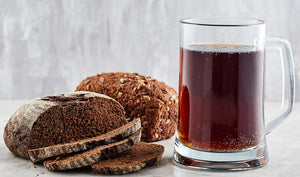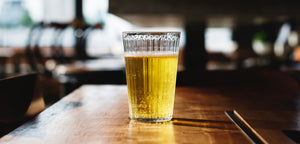Country of Origin

History
Barley wine is one of the oldest style of beer, its current style originated in England in the 15th century. However, barley wine in its earliest form dates back to Ancient Armenia.
In 18th century England, barley wine was commonly consumed as an alternative to wine as it had the same alcohol content, 8% - 12%.
Barley wine was introduced to North American by Anchor Brewing in the 1970's. Anchor's barley wine, Old Foghorn Barleywine was stylized with "barleywine" as the brewery was afraid the word "wine" would cause issues with regulators.
While craft breweries have kept barley wines somewhat popular as a niche style in North American, the popularity of this beer styles has significantly dropped off in England.
In 1903, Bass No. 1 was the first commercial beer to use the name Barley Wine.
Profile
Traditional English barley wines have a very rich malt & alcohol flavour, with a subtle hop flavour. By contrast, American barley wines usually have a more powerful citrusy hop flavour.
A balanced barley wine will have notes of dark fruit, a full mouthfeel and smooth warmth from the alcohol content.
Because of their high ABV, barley wines are perfect for cellaring and age well.
Serving
Barley wine is typically served in a snifter around 55 ºC or cellar temperature.
Food Pairings
Given it's rich, strong flavour, barley wine is harder to pair with food than other beers. While often enjoyed on its own, it does go well with strong cheese and rich desserts.


Brewing tips
- Use British Hops. A proper traditional barley wine is best brewed with British hops - Fuggles & East Kent Golding are generally the go to hops for this style. If you want an American version, Cascade and Chinook are good hops to use. Always choose hops that will compliment the complex and rich flavour of a barley wine - don't make it a hop bomb.
- Avoid Speciality Malts. Don't over complicate the grain bill for a barley wine. Use 80% - 100% pale malt. If you want to add speciality grains, avoid dark and smoked malts.
- Aging Is Key. If you can't wait to drink your barley wine, no one is going to judge you for cracking one open when it's "ready". If you're kegging, bottle a few for aging - barley wine is best when cellared and aged for several months or years. Give it time for the flavours to develop.
Want to brew your own Barley Wine?
Try Brew HQ's Barley Wine recipe kit.



